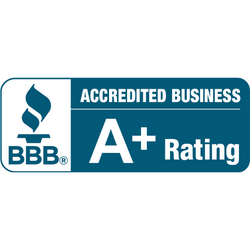Debt Collection Harassment Attorneys Are Here to Fight for You
Debt Collection Harassment is against the law. Creditors and debt collection companies don’t have the right to lower your quality of life with constant, unwanted calling and scare tactics. That’s why we’re here. Consumer Rights Law Firm PLLC came together to protect consumers like you from debt collection harassment techniques.
WE KNOW YOUR RIGHTS
You deserve to be treated with respect, and no collection agency has the right to demean your character, hinder your lifestyle, chase you down with harassing calls, or threaten you into compliance. We’ve helped many clients receive the relief and compensation payments they deserve. We want to help you too.
WE FIGHT FOR YOU
There is a legal way to collect on a debt, and an illegal way to collect on a debt. If you find that you are being harassed by a debt collector, please contact us, and we will listen to your story. We let you know where your rights may or may not have been violated. If your rights have been violated, you deserve direct compensation or the opportunity to take the offenders to court
YOU GET PEACE OF MIND
We will file an FDCPA claim against a third-party debt collector who has harassed you
The FDCPA explicitly bans third-party collectors from partaking in certain harassing and abusive debt collection methods. Even with this protection, many debt collectors choose to violate the FDCPA in an effort to collect your alleged debt.
We use Debt Collection Harassment Laws to help you to Strike Back
It’s a common scenario: a hard-working mother or father, brother or sister, friend or relative ends up owing on a debt due to student loans, credit card bills, and so on. Do you have a defaulted student loan? Defaulted student loans can lower your credit score by over 200 points so it’s very important to prevent student loan default. It’s part of life; with over 51% of the US population in debt, these men and women are not alone.
Our Lawyer for debt collection Protecting Rights of Consumers Across the Nation
We aim to protect your rights by connecting you with pre-qualified legal representation, and you do not have to pay us. Stopping debt collection harassment is our main area of practice. If you are receiving debt collection agency harassment calls from a debt collection agency or bank, feel free to contact us. If you feel as though you are being harassed by debt collectors, please contact us here.
Our Headquarter is in North Andover, Massachusetts and we have an accredited A+ Rating with the Better Business Bureau.
Contact Us About Your Case
We will contact and take on these companies and let them know that not only have they violated your consumer rights, but also that they owe you compensation. If they have violated federal laws regulating debt collectors, then they are also responsible for your attorney’s fees and costs; so you do not have to give us any money out of your own pocket for our legal services.
Free Case Review
I would have to say that Consumer Law Firm was very pleasant to work with. They really helped me resolve an issue. They had great communication with me at all times, they made sure I knew the process and always responded back quickly.
Mike was nice, informative, and jumped on the case A.S.A.P. Thank you consumer rights law firm for speaking up for me when I thought I did not have a voice. The scariest thing to hear from someone is for them to threaten to garnish your wages and you are barely making ends meet. Once again thanks for all your help.







